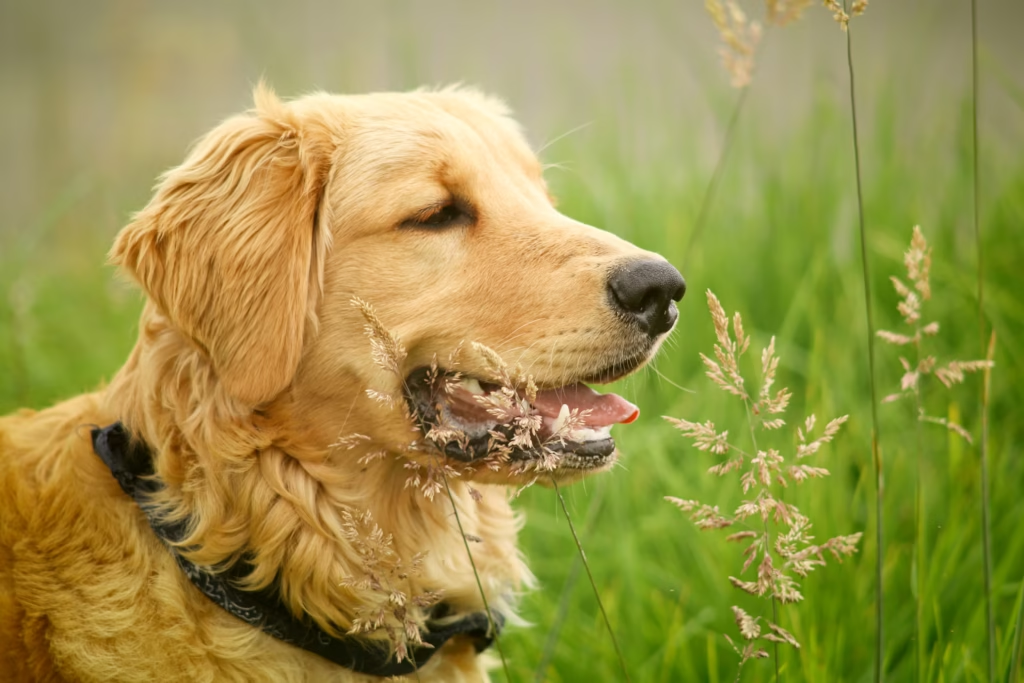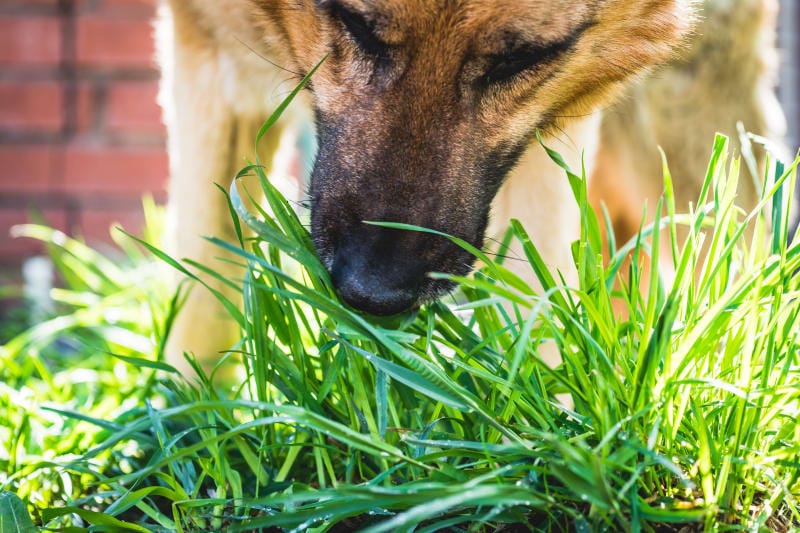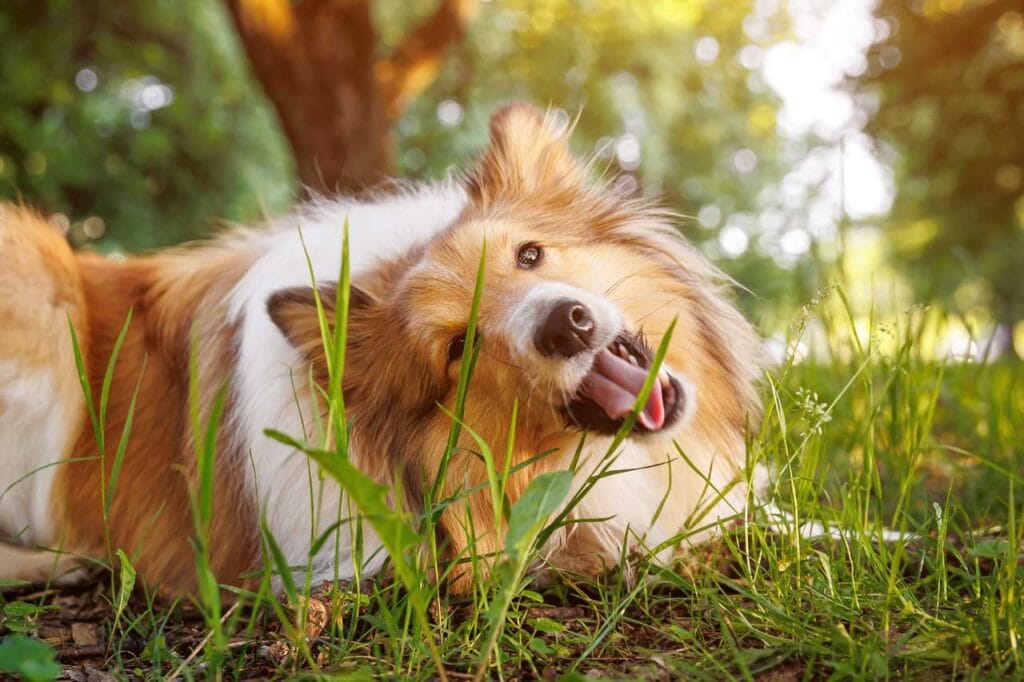Why Do Dogs Eat Grass? 🌱 A Vet-Backed Guide for Curious (and Slightly Worried) Pet Parents

You’re enjoying a lovely day outside, maybe sipping your coffee or watering the plants, and there’s your pup—tail wagging, nose twitching—chomping down on grass like it’s a backyard buffet. You pause and think, “Why do dogs eat grass?” 😳
Is it normal? Is it safe? Should you stop them? And what if they throw up right after? 😬
Deep breath. You’re not alone in wondering. This green-grazing behavior is surprisingly common in dogs, but it still leaves many pet parents scratching their heads. Let’s dig into the roots of this behavior (pun totally intended 🌿), guided by expert insight and backed by veterinary wisdom.
Table of Contents
🌿 Why Is My Dog Eating Grass? The 5 Most Common (and Surprising) Reasons
The answer isn’t just one-size-fits-all. Just like humans crave chocolate when stressed or popcorn during movies, dogs may eat grass for several different reasons. Here’s what the pros say:
1. 🌕 Instinct Runs Deep: A Nod to Their Wolfy Ancestors
Before your dog became a master of cuddles and couch naps, their ancestors were wild carnivores—and, surprise, even wolves eat grass occasionally. It’s believed this instinct remains buried in our dogs’ DNA.
“Grass-eating can be an ancestral habit,” says Dr. Emily Carter, DVM, a seasoned veterinarian with over 15 years of experience. “It might be your dog’s way of tapping into their primal side, seeking out plant matter to balance their diet.”
So, if your well-fed, pampered pup grazes the lawn every now and then, it could just be their inner wolf saying, “Mmm, wild salad!”
2. 🥬 Nutrition Gap? Maybe They’re Missing Something

Another possibility behind the mystery of why is my dog eating grass is nutritional deficiency. While dog food is usually complete and balanced, some pups may still seek out extra fiber or minerals.
Grass, believe it or not, contains trace nutrients and fiber that may help digestion.
“If a dog’s diet is low in roughage, they might turn to grass to fill that gap,” explains Dr. Carter.
🔍 What to do: Evaluate your dog’s food. Are you offering a variety of high-quality, fiber-rich ingredients? If not, adding vet-approved extras like pumpkin, green beans, or even cooked sweet potatoes can help.
3. 🧠 Boredom, Curiosity, or Just Vibin’
Sometimes, the reason your dog’s eating grass is as simple as… they’re bored.
Dogs are sensory creatures. Grass smells interesting, feels weird in their mouth, and gives them something to do when there’s nothing exciting going on.
“Grass can be a sensory experience,” says pet behaviorist Sarah Thompson. “Dogs explore their world through their mouths—and sometimes that exploration leads to a grassy snack.”
If this is the case, you’ll often see dogs grazing when they’re left alone outside or during long walks with little interaction.
✅ Fix it fast: Try increasing their mental stimulation. Toys, games, training drills, snuffle mats, and interactive puzzles can all do wonders. A busy dog rarely gets the munchies—for grass, that is.
4. 🤢 Tummy Trouble: A DIY Vomit Button?
Here’s one of the most widespread theories behind why dogs eat grass and vomit: they’re trying to trigger vomiting to ease an upset stomach.
Dogs are intuitive creatures. Some seem to know that munching a bunch of rough grass can irritate their stomach lining just enough to bring up whatever’s bothering them.
“Some dogs seem to eat grass intentionally to induce vomiting,” Dr. Carter confirms. “It’s like a natural, if crude, digestive reset.”
But don’t jump to conclusions. Research shows only about 10–25% of dogs actually vomit after eating grass, so this isn’t the full story.
Still, if your dog eats grass and then vomits more than just once in a blue moon, it’s time for a checkup. Constant vomiting could signal deeper issues like gastritis, parasites, or food intolerance.
5. 😋 Taste Buds Don’t Lie
Sometimes, your dog just… likes the taste.
Dogs are known for their quirky palates (hello, sock-stealing, trash-diving furballs). Certain blades of grass—especially young, tender shoots—might actually taste sweet or refreshing.
Think of it like how some humans chew on mint leaves or nibble on parsley. Your dog’s taste buds may be vibing with the local flora.
🛑 Is Eating Grass Safe for Dogs?

Here’s the golden question every dog owner has asked at some point: Is it dangerous if my dog eats grass?
The good news? In most cases, no—especially if it’s clean, chemical-free grass and they aren’t vomiting afterward.
“For most dogs, eating a bit of grass is no big deal,” reassures Dr. Carter. “It’s when the behavior becomes compulsive or leads to vomiting that we need to investigate.”
✅ When It’s Usually Safe:
- Your dog nibbles grass occasionally, not obsessively.
- They don’t throw up afterward.
- The grass is untreated—no fertilizers, pesticides, or herbicides.
- They’re not showing signs of discomfort, diarrhea, or lethargy.
If all those boxes are ticked, your dog is probably just being a weirdo in the best way. 😄
⚠️ When Dog Eating Grass Is a Red Flag
While occasional grazing is usually harmless, here are some situations where it’s a cause for concern:
- They eat grass every day, almost ritualistically.
- They vomit almost every time afterward.
- There’s blood in their vomit or stool.
- They’re losing weight, acting lethargic, or showing other signs of illness.
- You suspect the grass was treated with chemicals.
Parasites, toxins, gastrointestinal disorders, or behavioral issues like anxiety could all be hiding beneath the surface.
🚨 Bottom line: If you’re concerned, always check with your vet. Trust your gut—you know your dog best.
🧪 What Does Science Say About Dogs Eating Grass?
Despite how common this behavior is, there’s still a lot of mystery surrounding it.
In a landmark study published in Applied Animal Behaviour Science, researchers found:
- 68% of dogs eat grass at some point.
- Only 22% of grass-eating dogs vomit afterward.
- Younger dogs are more likely to indulge in grass grazing than older dogs.
A separate study at UC Davis hinted that grass-eating might sometimes be linked to dietary deficiencies, but for the majority of dogs, it’s considered a normal behavior with no sinister underlying cause.
“Science hasn’t fully cracked the code,” says behaviorist Sarah Thompson. “But what’s clear is that for most dogs, grass-eating is a multi-layered behavior—part instinct, part diet, part play.”
🌾 Should You Let Your Dog Eat Grass?

That depends. Ask yourself the following:
- ✅ Is it infrequent and doesn’t result in vomiting? → Probably fine.
- ❌ Is it obsessive, paired with vomiting, or happening on treated lawns? → Time to step in.
Here are some action steps to manage the behavior:
👍 Let Them Munch (If It’s Safe):
- Grow a pet-safe patch of grass or wheatgrass in your yard or in a pot. They’ll love it.
- Make sure your lawn is chemical-free if they like to graze.
- Keep an eye on how often they’re doing it.
🚫 Stop Them When Necessary:
- Redirect the behavior with toys or commands like “leave it.”
- Use positive reinforcement when they ignore the grass.
- Limit time in risky areas—like parks treated with chemicals or frequented by wildlife (parasite risk).
- Talk to your vet if the behavior seems tied to health issues.
❓ FAQ: Why Do Dogs Eat Grass?
Why is my dog eating grass and then throwing up?
They may be trying to settle an upset stomach or induce vomiting, but frequent vomiting should always be evaluated by a vet.
Can grass make my dog sick?
The grass itself usually doesn’t—but chemicals on it, parasites in it, or sharp foreign objects hiding inside it can.
How do I stop my dog from eating grass?
Try giving them more mental and physical stimulation, improve their diet with added fiber, and use positive training techniques to redirect the habit.
Should I be worried if my puppy is eating grass?
Puppies are naturally curious and mouthy. Occasional grass-nibbling isn’t a concern unless it’s excessive or causes vomiting.
🌟 Final Thoughts: Embrace the Quirk, Stay Vigilant
So, why do dogs eat grass? In many cases, it’s just a curious or instinctual behavior—one that’s mostly harmless, occasionally helpful, and weirdly endearing.
But as with anything related to our furry companions, moderation and observation are key.
Your job? Keep the grass clean, your pup engaged, and your vet in the loop if anything seems off. Because at the end of the day, our dogs trust us to help them live their weird, wonderful lives safely.
🐶💚 Got a grass-grazing story to share? Drop it in the comments—we’d love to hear all the strange, silly, and surprising things your dog has eaten lately. Just maybe not during lunch. 😉
